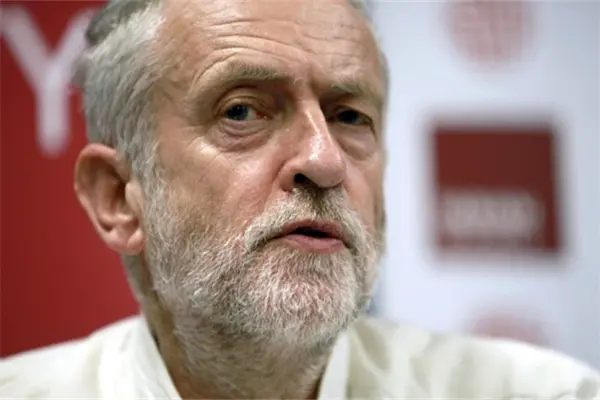Jeremy Corbyn, the leader of Britain's main opposition Labour Party, said Tuesday he had no plan to quit after his own MPs passed a vote of no confidence in him.
MPs passed the vote of no confidence in Corbyn by a margin of four to one, with 172 backing the measure and 40 supporting Corbyn. Four MPs abstained from voting.
The development came after the first of Corbyn's front bench team announced on Monday they were quitting, with a torrent of resignations continuing until virtually every member of Labour's shadow cabinet had resigned by Monday night.
They hoped that by quitting virtually en-masse, it would send a strong signal to Corbyn to resign as party leader.
Labour MPs arrived in the Houses of Parliament to vote, knowing that Corbyn had made it clear he would not quit.
Following the announcement of the result, Corbyn issued a statement reiterating his intention to stand in a contest if a contest was called to challenge his leadership.
The 172 to 40 vote is not binding and cannot force Corbyn to stand down from office.
In his statement, he said the Conservative government was "in disarray" following the vote to leave the EU.
"Labour has the responsibility to give a lead where the government will not. I was democratically elected leader...by 60 percent of Labour members and supporters, and I will not betray them by resigning. Today's vote by MPs has no constitutional legitimacy," he said.
The Labour leader claimed he had the support from trade unionists.
His aides insisted he has overwhelming support around the country and will win a leadership contest if one is forced by MPs.
Corbyn became the leader last fall after a leadership election was called following the resignation of then leader Ed Miliband after Labour's dismal showing in the 2015 general election.
Corbyn joined the race for the leadership as an outsider at the last minute, but quickly gathered massive grassroots supports among party members. He won more than a quarter of a million votes, 60 percent of all votes, 171,000 ahead of his closest rival.
He had never served in an official capacity, serving as a back- bench MP for the London constituency of Kensington North since 1983.
Critical MPs are now discussing whether to force a challenge to Corbyn by mounting a leadership contest.
Meanwhile, the Conservative Party is making arrangements to find a new prime minister after David Cameron announced Friday he would stand down in the fall.
Among the likely contenders are former mayor of London Boris Johnson and Home Secretary Theresa May. Other leading Conservatives are considering joining the race for the keys to 10 Downing Street. As the process of electing a Conservative leader takes weeks, if not months, the new prime minister will not be officially announced until early September.
Meanwhile, billionaire businessman Richard Branson said in a media interview Tuesday that his Virgin Group had lost about a third of its value since last week's vote by Britons to leave the EU.
Branson said: "We are heading towards a disaster. I don't believe the public realised what a mess their vote would cost."
He called for a second EU membership referendum, saying he believed the public had not been given the true facts by those backing Brexit.
(APD)
 简体中文
简体中文

